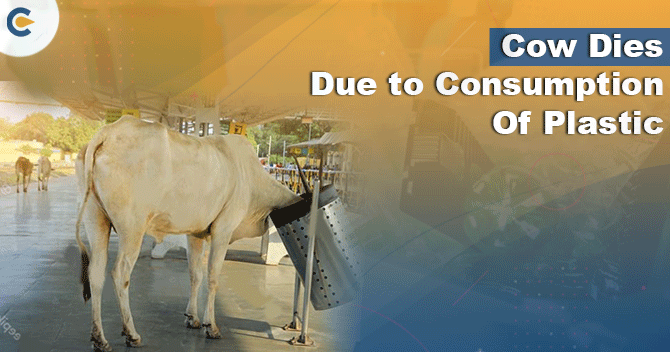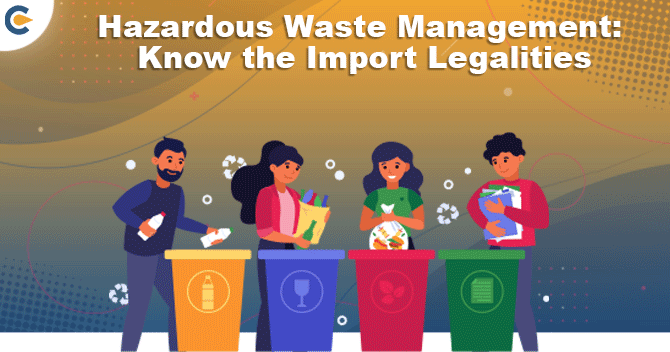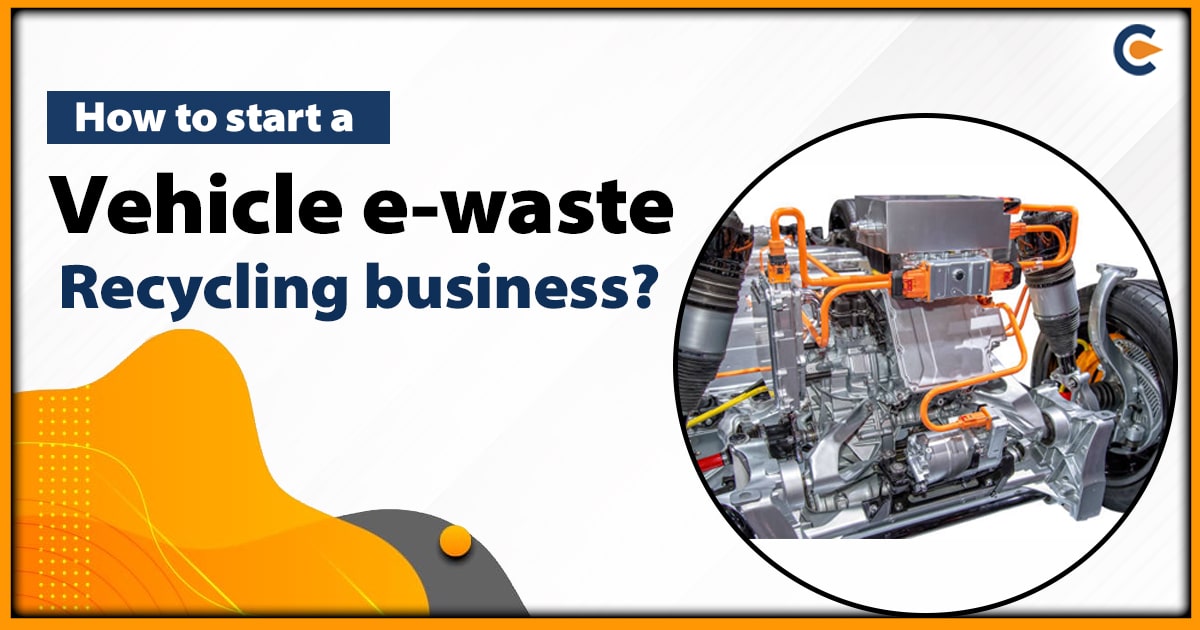In India, both in cities and towns, innumerable cows on the roads eat from garbage bins, looking for fruit, leftovers, anything eatable, and waste food. Since plastic bags have occupied our lives, almost all garbage and food waste are disposed of in plastic bags. These bags are disposed of either on the road or from community dustbins. Since the plastic bags are tied at the mouth, cows can undo the twist and eat food left in the Garbage, including Plastic. Gradually, they build up a vast amount of Plastic inside their stomachs. It gets entangled with different materials, and it becomes hard like cement inside their rumens, which is the first belly of the Cow. In this blog, we will discuss the grounds, problems, and solutions related to the Consumption of Plastic by Cow and its repercussions.
Importance of Cow in Hindu Mythology
As per Hindu Mythology, Cow is not a mere animal, they consider Cow as an adobe of 33 crores Hindu divinity, and hence Cow is regarded as religious in Hindu Dharma. A cow is treated as fortunate and a symbol of compassion and adherence. A cow is treated as the highest and most godly animal and has the utmost importance in Hindu traditions, being at the apex in the Animal world. As per the belief of Hindu Mythology, one can attain Moksha by worshipping the Cow. The unique blessedness of the Cow is expressed in the works of ancient Indian Rishis and later literature and folklore.
Also, as per Hindu Mythology, Cow symbolizes all other creatures, representing life and sustenance of life. In Hindu Mythology, the Cow is respected, adored, and given special feedings at festivals all over India, most notably the annual Gopashtama festival. From a very initial age, the children are taught to respect Cow. More than 3,000 institutions called Gaushalas in India, maintained by charitable trusts, care for old and infirm cows.
Benefits of consuming cow milk in the Human Body and its scientific importance
Generally, Cow milk is compared with other forms of milk available in the market, such as goat, buffalo, or even non-dairy milk such as soy, almond, oatmeal. But the milk of Cow has some unique nutrients, which cannot be compared with any other form of milk.
Cow milk is an old and reliable form of drink, which roots back in Ayurveda and is regarded as a healthful beverage for the total development of the body.
Strengthening bones and muscles- Due to a sufficient amount of calcium, cow milk is highly associated with the growth and maintenance of bone and muscle. Having cow milk regularly helps enhance the core strength and helps prevent osteoporosis and osteoarthritis.
Building brain health – Cow Milk is essential brain food. It has ample vitamin B, which helps calm the nerves and maintain a proper sleep cycle. Also, cow milk is known to improve your memory power and sharpness.
Helps in weight loss– Due to its high balanced value and healthy fat content, Cow’s milk is associated with weight loss. It is complete and stops sudden hunger cravings. Also, cow milk helps improve the body’s digestion and helps in weight loss.
Impact of Plastic consumption by Cow on milk and Cow Health
Whether in rural or urban areas, the cows roam on the streets looking for food in India. As the Farmers can’t afford to cater to their cows, they are generally left free to find the nutrients they need on the roads. As cows pick the plastic waste through a heap of Garbage, searching for leftovers, they also consume Plastic. Foreseeably, the most significant plastic contaminant digested by cows is plastic bags. The waste management system of India is hugely lacking, which means various roads and passages are messed up with the garage.
The Plastic consumed stores in their internal organs, making it difficult for cows to eat, which results in milk production drops, as does milk quality. Over time, plastic consumption “sentences cow to a slow and cruel death.” There are corrective measures to prevent death, but farmers usually leave cows rather than spend money on treatment once milk production drops.
Statistics of Cow death due to plastic consumption
Mishandled waste is causing hundreds of thousands of creatures to die each year in the developing nation from easily preventable causes, and plastic waste is a dangerous proportion to the problem.
Municipal waste continuously goes uncollected in poorer countries, and its expansion results in the spread of disease. Cows in numbers are dying due to mishandled waste and plastic consumption.
Why can’t we entirely ban Plastic use?
In general, using Plastic have a terrible reputation, but banning them altogether has some surprising adverse effects. A complete ban could have a consequence on consumer convenience. Among other concerns, there is always a chance that people might overestimate their contribution to helping the environment. By reducing the use of plastic bags and reusing bags, people may perceive that they are already doing their part to make the country a better place and stop using their efforts. But the fact is saving the environment involves more than just giving up plastic use. Also, banning the use of plastic bags could result in several people without jobs and put a price on individuals, sections, and public funding, whether through the purchase of reusable bags or learning programs for the public.
What are the loopholes in environmental law and practical problems to implement on the ground?
- One of the main loopholes in environmental law and practical problems to implement is that there is no autonomous regulatory body for environmental governance.
- Excessive interference by the government.
- Poor implementation of environmental law.
- Lack of political interest and public awareness.
- Relevant laws related to the environment consider the dominance of humans over the ecosystem and nature.
Solutions preferable to reduce the use of the Plastic
Moral responsibility to reduce Plastic use- Not just plastic use, it is everyone’s moral responsibility to make the world a better place. Unfortunately, many people don’t even bother to clean their surroundings. It is the responsibility of every person to reduce waste, including plastic use. With government support, plastic-waste management can be executed through stakeholders, including urban local bodies and plastic organizations, who can unite their efforts to spread awareness and initiate action with the help of social media platforms.
Also, Raw materials manufacturers may have to improve their machinery or replace it with an upgraded one. Additionally, the companies shall train their staff to meet new requirements. The number of waste-management bodies is expected to increase with the new rules. The alternative for plastic use needs to be environmentally friendly and should not impact people’s livelihood.
Start-up opportunity for young entrepreneurs
Plastic waste management and reusing it economically has turned into a hustle task now. The government has been seeking practices to entirely use waste and manage increasing waste management. There are various start-up opportunities for young entrepreneurs to initiate waste management start-ups. A person does not require huge capital to start Plastic waste management and can earn a good revenue besides creating a good impact on society.
Before starting a business, young entrepreneurs should recognize various plastic waste management businesses and choose them accordingly.
- Plastic to Oil
Before starting any business, the first question that clicks in our mind is that it is lucrative to create a specific company. The business of Plastic to oil is also one of them. Doing the business of waste plastic to fuel oil business, a young entrepreneur shall set waste plastic recycling to oil pyrolysis plant to convert the waste plastic into fuel oil and carbon black. Additionally, to get the revenue out of it, there are two factors that you need to considerate-
- The cost you invest on raw materials,
- The selling price of byproducts.
Plastic Garbage is the primary raw material of the Plastic to fuel the oil business. Owing to the plastic Garbage that has become blocking pollution worldwide, it’s easy to get enough waste plastics at a low price to disposing of.
2. Plastic Recycling Plant
Plastic is a destructible item and, thus, can be recycled. It can be liquified and recreated into different shapes. At the moment, various products come in plastic coverings, which are disposed of later.
For start-ups by young entrepreneurs, one must build contacts with freeloaders who can collect and sell plastic items at a lesser rate.
3. Pune’s initiative plastic waste use for Roadmaking
Experts have requested the civic body to try out practical ways to improve the quality of roads in the city, increasingly riddled with craters and eroding surfaces. One such facility employs plastic waste in roadworks. The experts think that Pune Municipal Corporation should follow Brihanmumbai Municipal Corporation’s[1] footsteps, which has made reused plastic waste for road construction mandatory.
The regulatory framework in India related to Waste management
On March 11, The Union Ministry of Environment, Forests and Climate Change (MoEFCC) on draft Plastic Waste Management Rules, 2021, has demanded a few changes in the country’s handling of its plastic waste.
As per the amendment, the ministry has extended the applicability of the rules to brand-owner, plastic waste processors, including the recycler, co-processor, etc. It will also include new terms of:
- Non-woven plastic bag
- Plastic waste processing
- Single-use plastic (SUP) item
- Thermoset plastic
- Thermoplastic
Further, the authority has proposed increasing the thickness of carrying bags made of virgin Plastic from 50 microns to 120 microns.
The draft proposed by the authority also proposes a ban on the manufacture, import, stocking, distribution, sale, and use of specific single-use Plastic from January 1, 2022. The draft is open for public suggestion for 60 days for consideration by the central government, following which it will be published in the Gazette of India
Different NOCs required in Waste Management
- EPR
EPR stands for Extended Producer Responsibility, a legislative strategy implemented by manufacturing countries to uplift and promote the reuse, recycling, and organics disposal of electronic and polymer waste. EPR sets out the responsibility of disposing of the garbage on the manufacturer of the items itself.
Further, the rules of EPR are put in place to ensure that the manufacturer takes the responsibility of reducing the impact of the waste generated by their products.
EPR is a NOC issued by the Central pollution control board (CPCB) to manufacturers responsible for generating plastic waste or E-waste or heavy users of these wastes.
- PRO
PRO stands for Producer Responsibility Organization that deals with end plastic goods management and recyclability. Recently, PRO policies were introduced by CPCB (Central Pollution Control Board). Implementing the PRO is the increasing consumption of a range of complex durable goods over the years that have created severe environmental problems. Also, the government has recently introduced a policy for the manufacturer of these goods to be responsible for their end-of-life management.
Conclusion
Conclusively, the Plastic consumption by the cows is dangerous for their life resulting in the death of cows as they are malnourished and vulnerable to disease. The end of these animals has become a significant issue that needs to be corrected to provide a better and healthy life to all the creatures. Regrettably, many people don’t even bother to clean their surroundings. Consumption of Plastic is the responsibility of every person to reduce waste, including plastic use.
Read our article:Know the legalities for establishing a Plastic waste recycling plant in India











